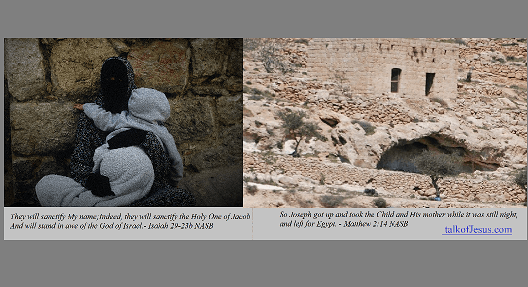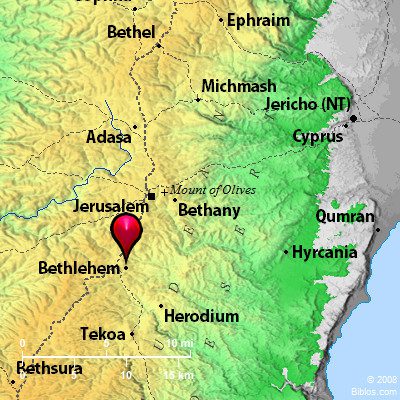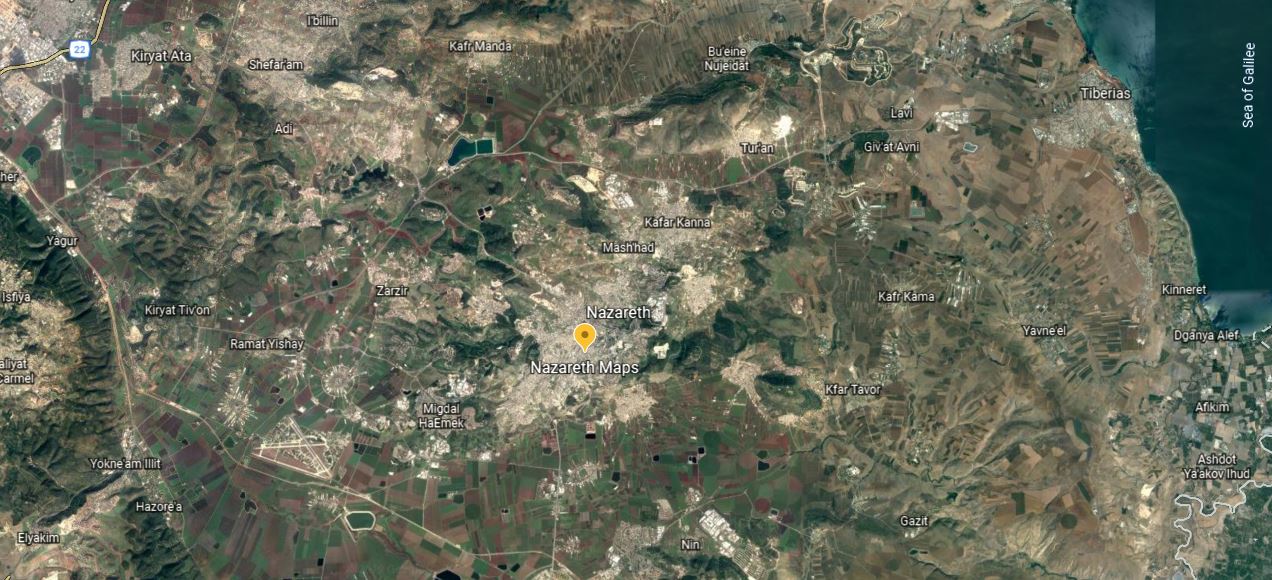We show no awe of Jesus in our no-salt ‘christian’ lives. Oh, perhaps in a stanza of singing, a sentence of sermon or a moment of compassion in our encounter with another; but for the most part we Christians fail to show any awe of Jesus in our worship or daily lives.
Our church and yours will most likely witness the “aahhh” of a baby born in Bethlehem directed for our children. Ah, not awe — the small sprinkling of Christ for the community, rather than Spirit led worship of the Christ who still lives.
AWE!
The forgotten awe of the Lord God witnessed in the past becomes the superstition of today’s disbelief.
When we read of the awe of Jesus we quickly overlook it. How easily we miss a personal awe of the Lord.
So just for a moment put yourself in the sandals of some witnesses we missed in Jesus’ introduction. (For the Gospel shows us much more than the ‘ah’ of a babe in a manger.)
The Gospel of Matthew
1:20b … an angel of the Lord appeared to him [Joseph] in a dream… 24 When Joseph woke up, he did as the Lord’s angel had commanded him.
Note: Maji: Matthew 2:1 A caste of wise men specializing in astronomy, astrology, and natural science
2:2 “Where is he who has been born king of the Jews? For we saw his star at its rising and have come to worship him.”
13 When they had gone, an angel of the Lord appeared to Joseph in a dream. “Get up,” he said, “take the child and his mother and escape to Egypt.
19 After Herod died, an angel of the Lord appeared in a dream to Joseph in Egypt.
The Gospel Mark
The beginning of the gospel of Jesus Christ, the Son of God.
9 In those days Jesus came from Nazareth in Galilee and was baptized by John in the Jordan. Immediately coming up out of the water, He saw the heavens opening, and the Spirit like a dove descending upon Him; and a voice came out of the heavens: “You are My beloved Son, in You I am well-pleased.”
The Good News (εὐαγγέλιον) of Luke
1:8 … he was serving as priest before God… 11 An angel of the Lord appeared to him, standing to the right of the altar of incense. 12 When Zechariah saw him, he was terrified and overcome with fear. 13 But the angel said to him: “Do not be afraid, Zechariah…
26 In the sixth month, the angel Gabriel was sent by God to a town in Galilee called Nazareth, to a virgin engaged to a man named Joseph, of the house of David…
2:9 Then an angel of the Lord stood before them, and the glory of the Lord shone around them, and they were terrified. But the angel said to them, “Don’t be afraid…
13 And suddenly there appeared with the angel a multitude of the heavenly host praising God and saying,
“Glory to God in the highest,
Luke 2:14 NASB – Strong’s G2107 – eudokia Blueletterbible.org
And on earth peace among men with whom He is pleased.”
33 And His father and mother were amazed at the things which were being said about Him.
Does Jesus still amaze you after hearing HIS STORY each year?
Do you hear the awe in these witnesses of Christ? And like them do hold HIM in awe as well?
34 And Simeon blessed them and said to Mary His mother, “Behold, this Child is appointed for the fall and rise of many in Israel, and for a sign to be opposed—
Prophecy – Simeon recalls and applies prophecy of the Messiah to Jesus, the Son of Man born in a manger in Bethlehem.
The Gospel of John
In the beginning was the Word, and the Word was with God, and the Word was God.
The same was in the beginning with God.
John 1:2 KJV of Christ Jesus ‘this one, visibly present here

The Lamb of God
29 The next day John saw Jesus coming toward him, and said, “Behold! The Lamb of God who takes away the sin of the world!
30 This is He of whom I said, ‘After me comes a Man who is preferred before me, for He was before me.’
John the Baptist was in awe of Jesus. Are you?
51 And He said to him [Nathanael], “Most assuredly, I say to you, hereafter you shall see heaven open, and the angels of God ascending and descending upon the Son of Man.”
Awesome! Truly, the Gospel records many instances of awe connected to Christ Jesus.
What is Awe?
φόβος – phobos
You know the greek root and its connection to fear, dread, terror and that which strikes terror.
Yet we marginalize our phobias even of miracles. And awe in this sense startles our sense of the natural. For our human understanding must be finite and understanding of the infinite baffles us.
We mention the fear of the shepherds who witnessed the awe of angels at Jesus’ birth. Yet seldom will we note the supernatural motivations for the multitudes of followers who subsequently had to see and hear the Messiah Jesus.
In just one scene here in Nain, imagine yourself as part of the crowd gathered for the funeral of this man. Jesus, of whom you have heard, walks up and touches the coffin.
“Young man, I say to you, arise!”
The dead man sat up and began to speak. And Jesus gave him back to his mother.
Fear gripped them all, and they began glorifying God, saying,
“A great prophet has arisen among us!” and,
“God has visited His people!”
Luke 7:14-16
Luke further records witness of the first century church.
Everyone kept feeling a sense G5401 of awe; G5401 and many wonders and signs were taking place through the apostles.
Acts of the Apostles 2:43 – awe = Literally: fear was occurring to every soul
Fear as Consequence of Awe
We frequently live in fear during this brief mortal journey of our life.
Do we fear man and circumstance or the Lord?
Therefore here this one example of awe from the Hebrew Bible [Old Testament] as wisdom for our fear.
33:8 יִֽירְאוּ מֵיְהוָה כָּל־הָאָרֶץ מִמֶּנּוּ יָגוּרוּ כָּל־יֹשְׁבֵי תֵבֵֽל׃
Let all the earth fear the LORD;
Psalm 33:8 Masoretic Text; NASB
Let all the inhabitants of the world stand in awe of Him.
To be continued...




